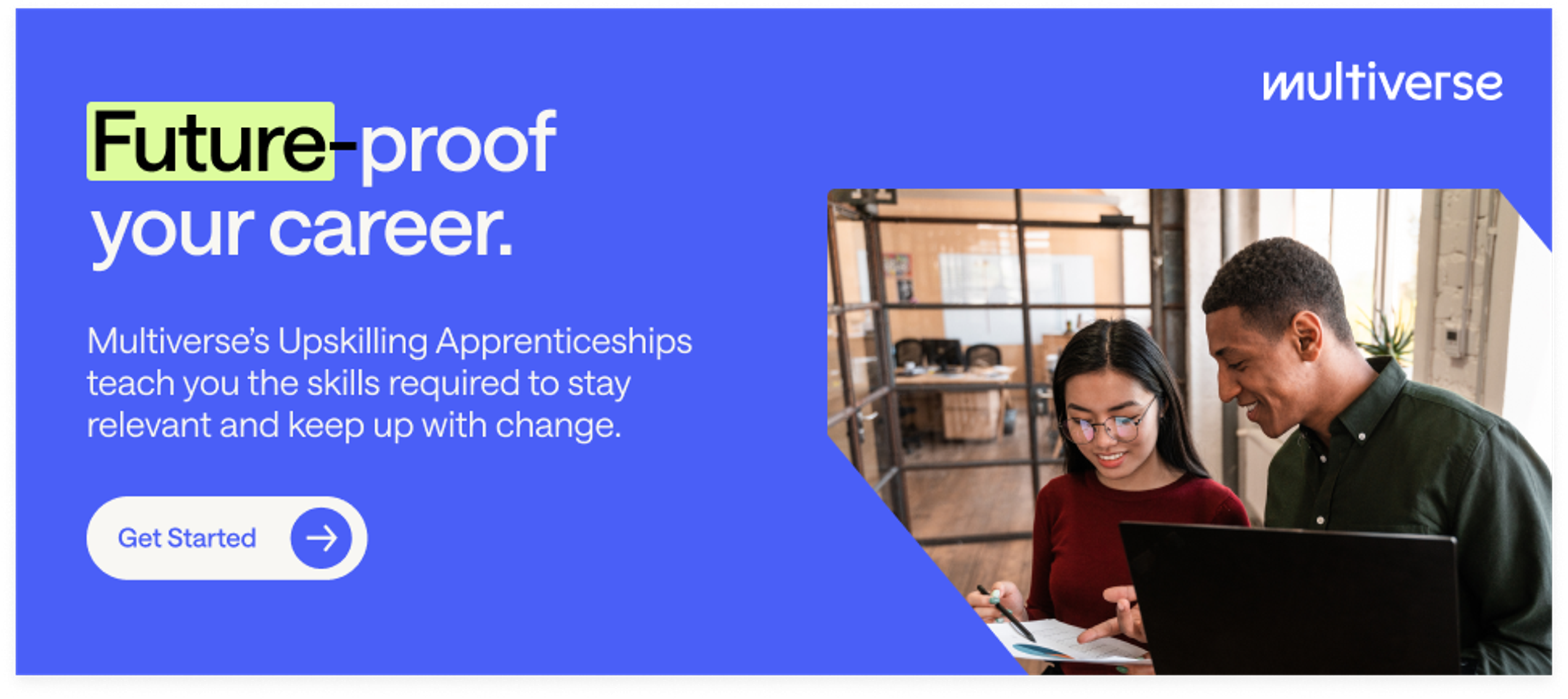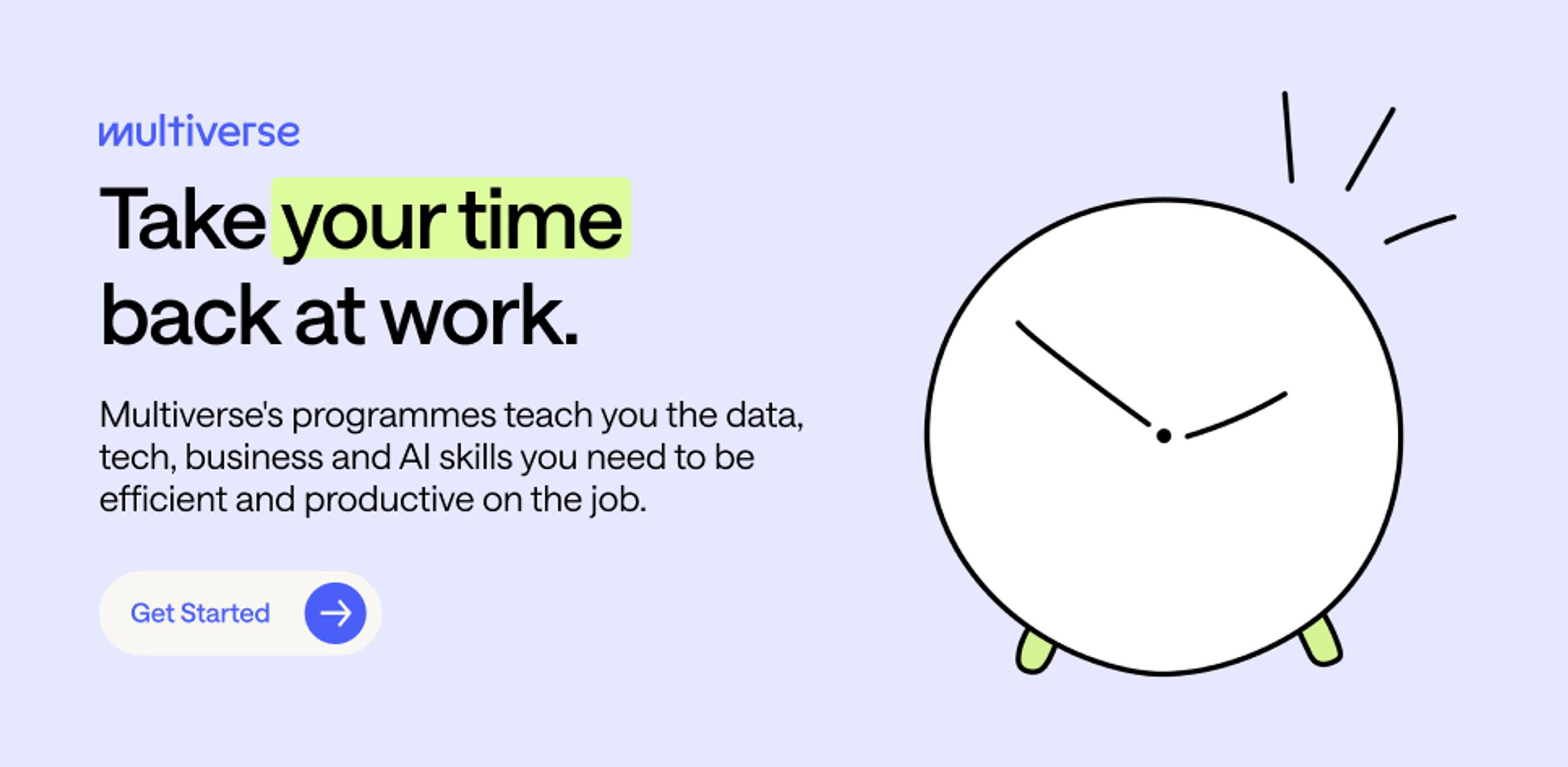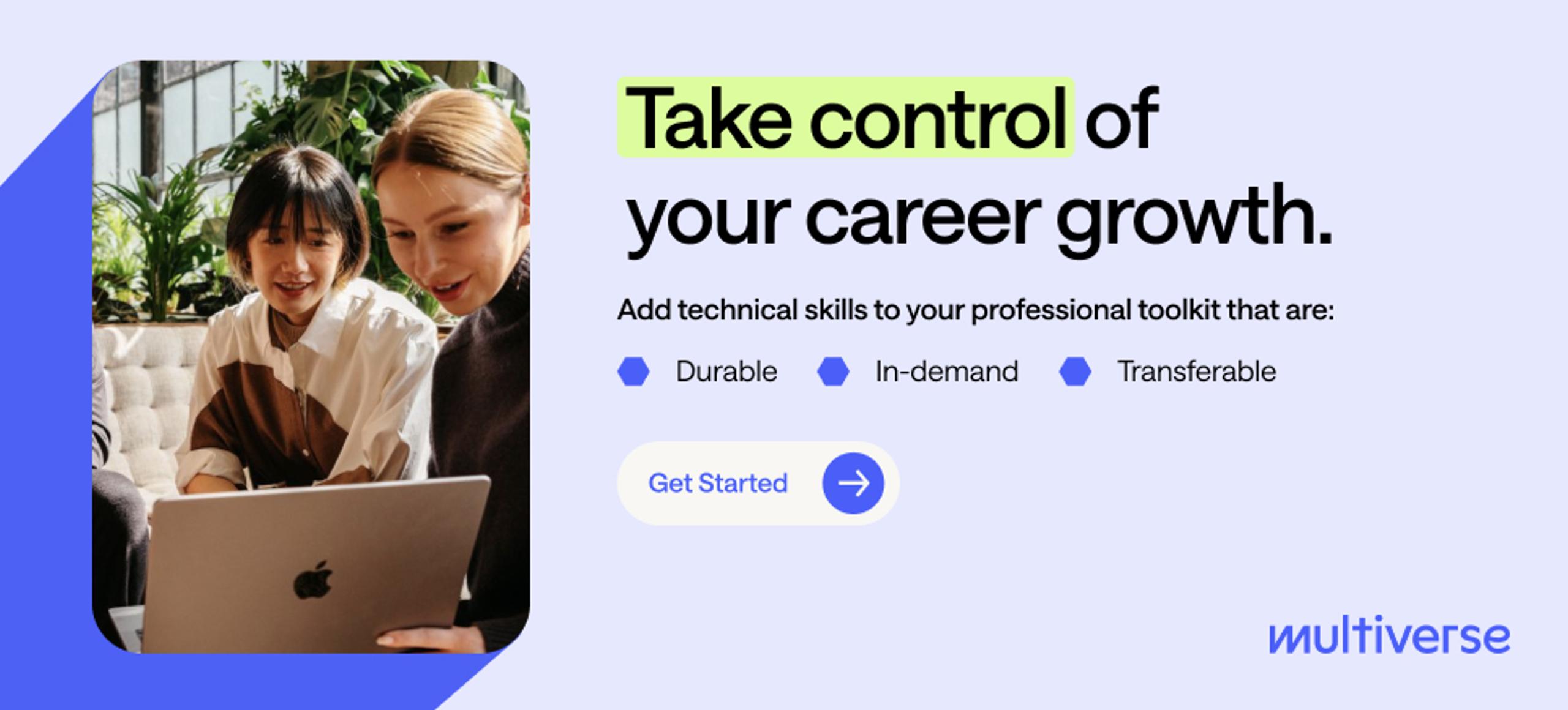Coding has become one of the most sought-after skills in the tech industry and beyond. A growing number of career paths require coding knowledge.
But some options are better than others. Attending coding bootcamps or college is expensive and doesn’t always help learners gain practical work experience.
Luckily, you don’t need to be an expert to start coding. You can earn a salary and learn coding skills at the same time. Here are five ways to get paid to learn code and advance your professional career.
1. Complete an on-the-job learning program
Apprenticeship programs pay you to learn in-demand skills, and they teach you on-the-job.
Unlike other options on this list, you earn a consistent salary with a professional apprenticeship. Most importantly, you don't have to put your career on hold to learn crucial coding skills.
2. Tap into your company’s professional development opportunities
Many businesses have professional development budgets that you can put toward learning how to code. For example, you could ask your current employer to cover the cost of online classes or certification.
Putting your professional development dollars toward coding can increase your earning potential through:
- Promotion and advancement: Move up in your career with your new skills.
- Career change: Transition to a better-paying, coding career.
- Side-income: Practice your new skills by taking on paid coding projects.
3. Join paid coding challenges
You can earn money and build your coding skills through competitions, hackathons, and challenges.
However, only some coding competitions offer a cash prize. Others give winners prizes like a trip to a tech conference, free products, tech, or publicity. Bear in mind that you will likely need some prior coding knowledge to succeed in a competition or hackathon. You should read the fine print before participating.
A few paid coding hackathons are:
- Square Developer Hackathon: Entrants use the Square developer platform to build or expand mobile applications. Participants can compete in several categories, including geofencing and generative AI. The developer of the best project wins $20,000 and gets an hour-long meeting with the Square product team. The hackathon also awards smaller cash prizes ranging from $2,000 to $15,000 for second place and the top projects in each category.
- Theta Hackathon: Competitors create projects with Theta Network technologies. For instance, entrants can build gaming applications or video platform integrations. The first-place winner receives $75,000, while the runner-up gets $50,000. The top project in each technology track earns $17,500.
4. Try entry-level freelancing
Freelancing is one way to get paid as you learn to code. To start freelancing, assemble a portfolio to showcase your skills and previous work to prospective clients. You can find paying clients on freelancer platforms like Upwork or Fiverr.
Freelancer marketplaces make it easier to find clients when you're new to coding. However, they take a percentage of your earnings. On Upwork, it's 10% per project, and on Fiverr, it's as much as 20%.
If you’re just beginning your coding journey, you’ll likely start freelancing at a lower rate than more experienced developers.
As your experience increases, you can gradually raise your prices to reflect your developing skills. You can also increase how much you earn by getting more clients through referrals instead of freelance marketplaces. When clients come to you through referrals, you don't have to share your earnings and they're more likely to hire you.
Other tips you can use to get paid freelance coding projects include:
- Reaching out to local businesses to offer your services
- Asking your family and friends if they need help with coding projects
- Signing up with an agency that matches corporate clients with freelancers
- Applying for freelance and contract positions on LinkedIn
Beginning coders may make as little as $5 to $10 for small web development projects on platforms like Fiverr. Experienced freelance programmers earn an average yearly salary of $72,000 if they work full-time.
You can also make money coding by recording your journey on social media. There are many online coding communities and creators that share their process on Instagram, TikTok, and YouTube.
For example, you could make how-to videos for beginners learning to code or share the progress on the projects you’re working on. Some creators even live-stream while coding. But, how do you make money?
There are many ways to monetize your social media including:
- Affiliate marketing: As you build a presence online, you’re likely to attract brand partners that want to work with you. In exchange for embedding links or promotions to products or services in your content, you can earn a commission. If your followers use the links or ads to buy products, you’ll typically earn anywhere from a 5% to 30% commission per purchase.
- Brand sponsorships: Brands pay influencers to promote products like keyboards or software programs in sponsored posts. Major influencers with over 100,000 followers can earn $1,000 or more per sponsored post.
- YouTube ad revenue: The YouTube Partner Program allows content creators to include ads before and during their videos. However, you’ll need at least 1,000 YouTube subscribers and 4,000 hours of watch time on your videos.
- Online courses, coaching, and playbooks: Many influencers earn money via online courses or how-to tutorials. For example, if you create a platform for coding beginners, you could offer additional help via an online course or digital product that followers can purchase.
Sharing your coding journey on social media can help you practice your technical skills with an online community. You can potentially earn side income along the way, but it may not be consistent.
Highest-paying coding skills
Researching industry trends and job postings can help you identify the best programming language to learn. For example, people interested in the Software Engineer career path may use Erlang to create coding projects like chat messaging apps.
Multiverse coaches teach JavaScript, Elixir, and other in-demand programming languages during apprenticeships. As an apprentice, you have more flexibility to choose a language based on the projects you’re working on in your placement.
Pursue paid coding opportunities
Learning to code takes time and effort, but you don’t need to pay to do it. With an apprenticeship, your employer can pay you to upskill your current abilities by learning to code on the job.
Paid apprenticeships, freelancing, monetized social media, and other options allow you to grow your bank account and coding skills simultaneously.







